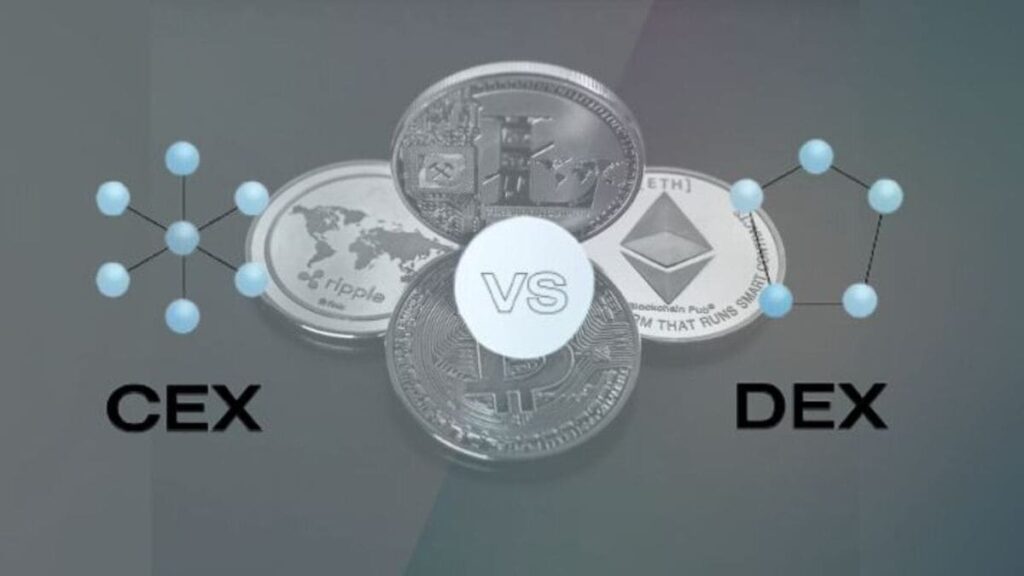When considering buying or selling cryptocurrency, an exchange is often the first point of contact. Centralized exchanges (CEXs), such as Binance, Kraken, and Coinbase, are digital marketplaces where crypto trading takes place and are commonly the first point of entry for trading.
In recent years, decentralized exchanges (DEXs) have emerged to challenge CEXs, offering lower transaction fees, allowing users to directly hold their assets, and avoiding some regulatory burdens. However, they must compensate their liquidity providers for a risk known as “impermanent loss.”
CEXs also have their advantages. Their business model is similar to traditional institutions like the New York Stock Exchange, which may be more familiar and comfortable for traditional investors. Centralized exchanges (CEXs) commonly provide more user-friendly interfaces and apps, higher liquidity, and stronger regulatory assurances, which can be extremely essential for institutional clients.
However, this also means that the central company running the exchange has significant power and responsibility for its financial stability and health.
Crypto exchanges are platforms that allow you to buy and sell crypto assets. Crypto exchanges come in two main forms: centralized and decentralized exchanges. Before you start trading in crypto, you need to know what these platforms are and how they operate.
If you want to trade in crypto assets, you need to choose a crypto exchange that suits your investment goals. You need to understand the differences and similarities between these platforms before you start trading in crypto. This article gives a detailed comparison of centralized and decentralized crypto exchanges.
What is a Centralized Crypto Exchange?

Centralized exchanges are the most popular type of cryptocurrency exchange among regular users, as they are the primary means of purchasing cryptocurrencies, particularly for first-time investors. But what is a centralized crypto exchange?
A centralized cryptocurrency exchange is a digital marketplace for trading cryptocurrencies, operated by a central entity that serves as an intermediary between buyers and sellers.
Centralized exchanges (CEXs) work by holding digital assets on behalf of their clients and facilitating the mechanics of crypto trading while setting the terms and conditions for trading.
Features
Centralized exchanges have several unique characteristics, including holding private keys to their clients’ wallets, which are essential for transferring cryptocurrencies.
Centralized exchanges typically require users to complete a Know Your Customer (KYC) process to comply with regulatory requirements aimed at verifying user identities and preventing illicit activities such as money laundering and terrorist financing.
This involves providing identity information, submitting verification documents, and waiting for KYC verification. Once these steps are completed, users can fund their accounts and begin trading.
Centralized exchanges also rely on order book matching technology to facilitate cryptocurrency trading. This system identifies matches between buyer and seller orders to enable trades. Many centralized exchanges also use market makers to provide liquidity for listed cryptocurrencies and ensure competitive spreads.
Advantages
Centralized exchanges provide several benefits to their users, including user-friendly interfaces that are designed for ease of use, allowing both novice and advanced users to navigate, deposit, and withdraw funds easily.
In addition, established centralized exchanges typically support a wider range of cryptocurrencies for trading than decentralized exchanges, providing users with more options for diversifying their investment portfolios. Centralized exchanges also offer higher liquidity compared to decentralized exchanges (DEXs).
Liquidity refers to the ease with which an asset can be bought or sold without significantly affecting its market value and is an important factor for traders seeking to execute fast transactions with low volatility. The more liquid an asset is, the easier it is to exchange without impacting its value.
Disadvantages
Centralized exchanges have several significant drawbacks. One major disadvantage is that users do not have control over their crypto wallet keys, meaning they do not have direct access to their assets. This can result in significant losses, for example, if an unregulated exchange suddenly shuts down.
Another drawback is security concerns. Centralized exchanges have been targeted by high-profile hacks over the years, resulting in the loss of hundreds of millions of dollars worth of cryptocurrencies. Many of these hacks have targeted central authorities, which are considered a potential point of failure.
Centralized control also makes these exchanges vulnerable to rug pulls, which can result in investors losing money.

What is a Decentralized Crypto Exchange?
A decentralized cryptocurrency exchange operates on a decentralized, noncustodial blockchain system, allowing for direct transactions between peers.
Features
Decentralized crypto exchanges facilitate peer-to-peer trading through self-executing blockchain-based applications called smart contracts. This eliminates intermediaries and allows anonymous trading without needing KYC processes.
Advantages
DEXs offer benefits such as censorship resistance and anonymity due to the lack of KYC requirements. This makes them accessible to unbanked users without proper documentation. DeFi platforms provide blockchain-based financial services, including peer-to-peer lending and borrowing, with lending pools controlled by smart contracts. Users can also gain passive earnings through DeFi staking.
Disadvantages
Decentralized exchanges can have lower liquidity levels and significant asset price deviations due to their smaller user base and trading volumes. They also require technical knowledge and familiarity with blockchain technology, including the use of compatible wallets and the management of private keys.
Security
Centralized exchanges have fewer scams and offer personal safety through wallet management, allowing for password resets. However, on decentralized exchanges, there is no recourse for lost funds due to scams, and users are responsible for managing their wallets and seed phrases.

Regulations
Centralized exchanges are licensed and regulated by governments, and may be prohibited in certain countries. Decentralized exchanges, on the other hand, are not subject to government control and cannot be shut down. However, this also means they lack customer support.
The popularity of DEXs may be due to their ability to avoid regulatory hurdles, as they operate autonomously and do not have to meet KYC or AML standards. For example, ShapeShift pivoted from a CEX to a DEX in 2021 after losing 95% of its users due to KYC measures implemented in 2018.
Conclusion
The future of cryptocurrency exchanges is promising, with advancements driven by mainstream adoption and the evolving landscape. Government and regulatory measures will likely boost investor confidence, facilitate integration with traditional finance, and enhance security and transparency.
Technological advancements will enhance the usability and efficiency of crypto exchanges, improving the user experience, streamlining transactions, and increasing operational effectiveness.










